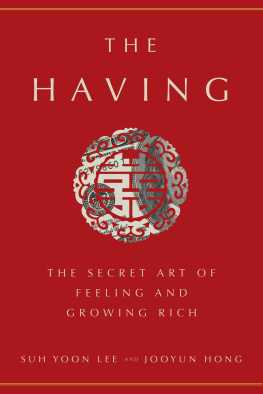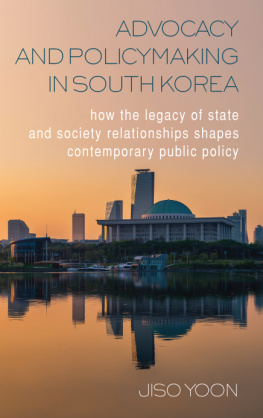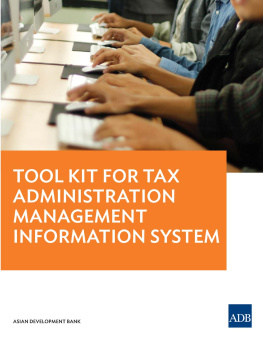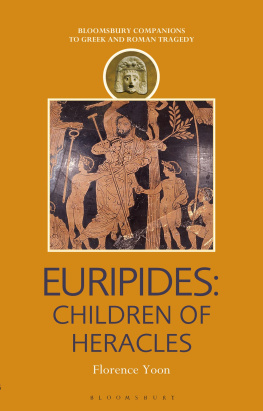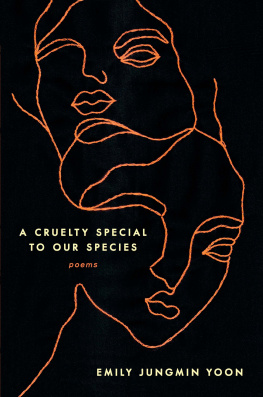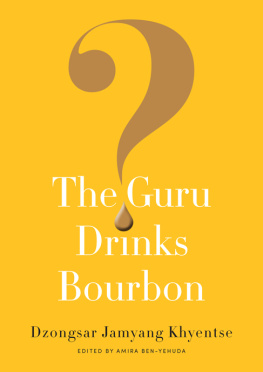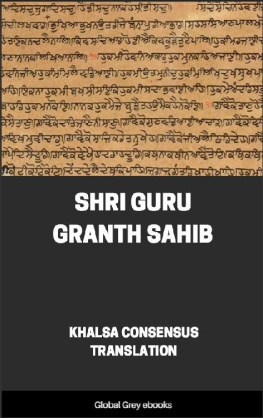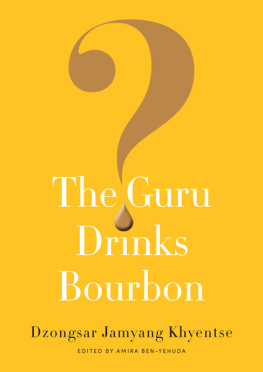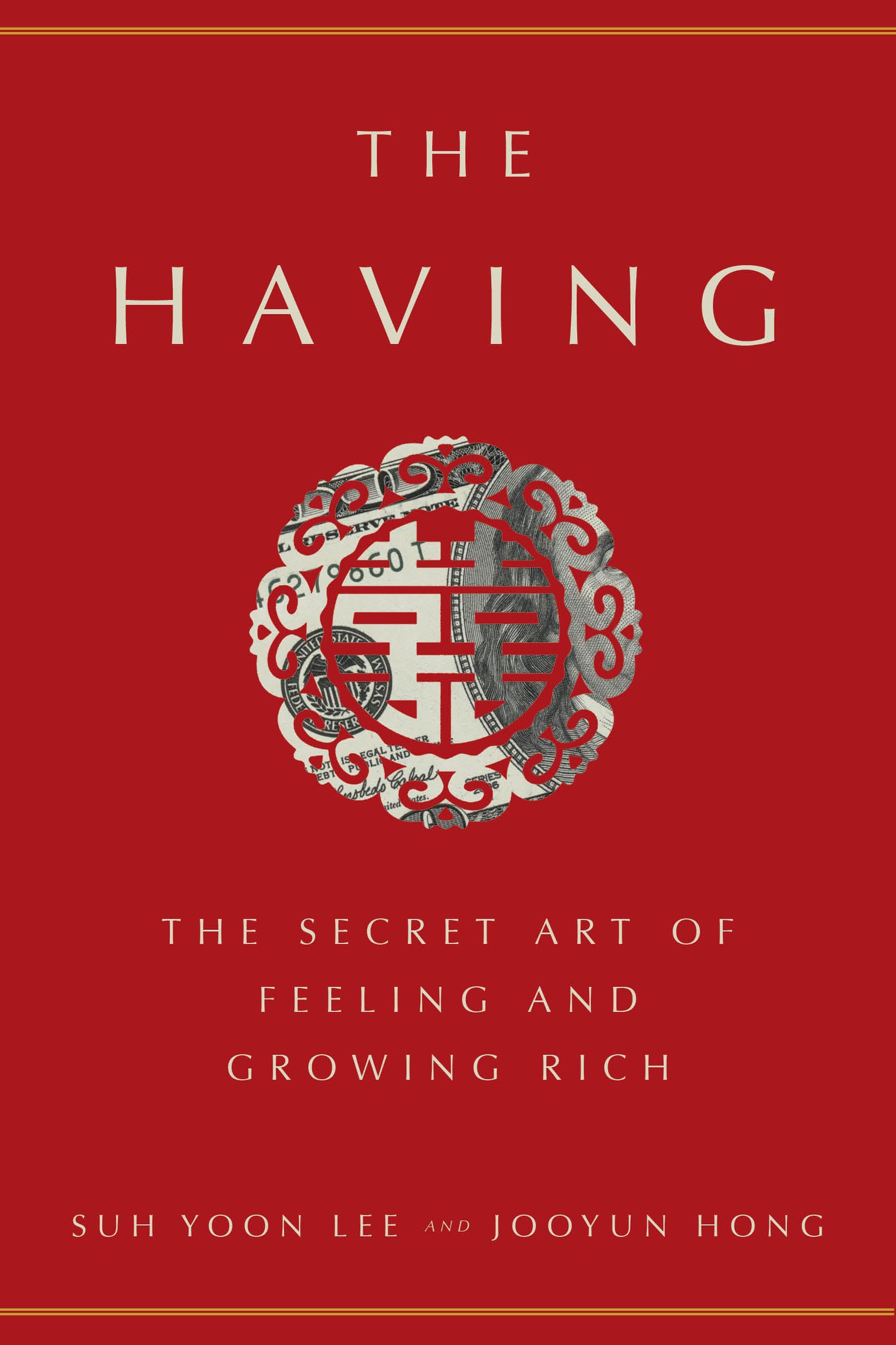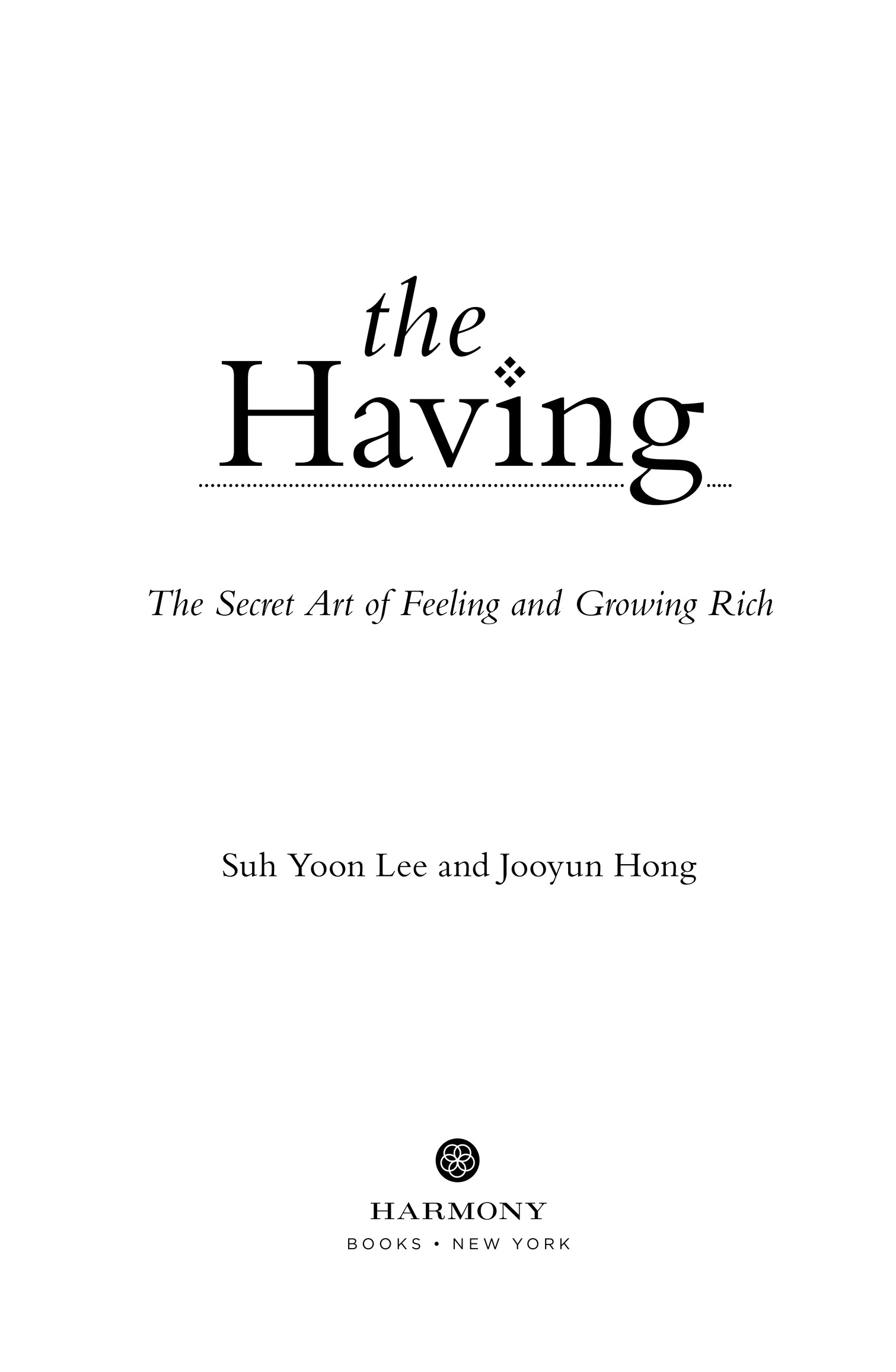Contents
Landmarks
Print Page List
Copyright 2019 by Suh Yoon Lee and Jooyun Hong
All rights reserved.
Published in the United States by Harmony Books, an imprint of the Crown Publishing Group, a division of Penguin Random House LLC, New York.
crownpublishing.com
Harmony Books is a registered trademark, and the Circle colophon is a trademark of Penguin Random House LLC.
Library of Congress Cataloging-in-Publication Data
Names: Lee, Suh Yoon, author. | Hong, Jooyun, author.
Title: The having : the secret art of feeling and growing rich / by Suh Yoon Lee, Jooyun Hong.
Description: New York : Harmony Books, [2018] | Includes bibliographical references.
Identifiers: LCCN 2018006863 (print) | LCCN 2018010231 (ebook) | ISBN 9781524763428 (ebook) | ISBN 9781524763411 (hardcover)
Subjects: LCSH: Joy. | Shopping. | Wealth.
Classification: LCC BF575.H27 (ebook) | LCC BF575.H27.L44 2018 (print) | DDC 650.1/2dc23
LC record available at https://lccn.loc.gov/2018006863
ISBN9781524763411
Ebook ISBN9781524763428
Cover design by David Gee
Cover photographs: (bill) Dmytro Synelnychenko/iStock/Getty Images; (Chinese symbol) myistock88/iStock/Getty Images
v5.4
ep
Contents
Prologue
Shes a woman destined to make others rich.
Those words echoed in my mind as I glanced out the airplane window at an endless range of mountains. I guessed that we must be crossing Asia. I was on my way to Europe to meet Suh Yoon Lee, called the Guru to the rich. My father had spent his entire life saving money before he passed away a few months earlier. Before he died, he had implored me to find a way to become rich without sacrificing the present for the future. I, a former journalist, had asked around and realized that only this Guru could give me the answer. As I looked out the window, I asked myself, When I meet hercan I, too, become rich?
Master of Mindset (M.o.M.), Insight Queen, La Divina, Oasis of the Hopeless, Visionary-in-ChiefIt was a list of nicknames worthy of Daenerys Targaryen (character from Game of Thrones), and the owner of all these names was Suh Yoon, an attractive, fascinating woman in her thirties. At the age of six, she had embarked on her lifes work: observing others lives and studying the secret to wealth. She had counseled the wealthy in her teens and already made a name for herself in her twenties as a Guru among well-known businesspeople, real estate conglomerates, and investors. It was said that people had to wait more than a year to hear her advice and that even presidential candidates and leaders of global businesses consulted her. She had analyzed more than 100,000 cases of wealthy people and integrated the results to discover the secret to wealth.
A newspaper article about her destiny was especially memorable. Chinese merchants traditionally read each others fortune before trading. Suh Yoons grandmother had learned the studies of fortune from the Chinese merchants she worked with through her fabric business, and she went on to read the fortunes of her several grandchildren. She was surprised at Suh Yoons. This six-year-old granddaughter had the extraordinary gift of bringing wealth and luck to many people. She is even quoted as saying This child is destined to make others rich. Suh Yoon will lead many people to wealth and heal their hearts.
Having gotten this far, I suddenly began to worry. What if Suh Yoon told me it was impossible to become rich in this new world and told me to stop dreaming about it? What if she gave me advice that didnt work at allthat left me worse off than now? What if Id misunderstood her words and she didnt actually want me to come all this way to see her?
To clear away my distracting thoughts, I turned on the overhead light and pulled out a notebook. I wrote down the questions I wanted to ask when I met Suh Yoon:
What can I do to become rich?
That is, if I can become rich. Can I become rich?
When will I be rich?
How much money will I be able to have?
Could I be rich without sacrificing today?
Meanwhile, the plane was descending. My hands and feet suddenly trembled with the vibration.
Im not sure, but I think my whole life is about to change.
My father loved yellow corvina. Its a palm-sized, salty, dried fish sold in sets of ten for about $300, mostly served on traditional Korean holidays. Whenever my father was asked what his favorite food was, hed always answer the same way: yellow corvina. Hed speak of the salty taste hed enjoyed at his relatives house as a child. After a moment of wistful reminiscence, hed then go on to tell the same folk tale.
A long time ago, there lived a miser who loved yellow corvina. Because he was reluctant to eat this expensive delicacy even after becoming rich, he hung a yellow corvina from the ceiling. He would take a bite of rice, look at the yellow corvina, and say, Ahits salty. He kept this up day after day, eating rice while staring at the increasingly spoiled fish. Finally, the fish rotted away entirely, uneaten.
You might think the moral of this story is that we should enjoy lifes pleasures while we can. But no. My father told this story because he admired the miser. He wanted to teach me that money must be conserved and preferences must be restrained.
When I was a child, my family motto was A penny saved is a penny earned. During every meal, my father preached that I mustnt leave a single grain of rice or drop of soup. I wasnt allowed to buy penny candy as a child or to use more than three squares of toilet paper, and I even had to limit how much water I used to wash. My father modeled this frugal behavior; even after he could afford it, he was reluctant to buy yellow corvina.
My father was born in Seoul, Korea, the year World War II ended and lived through destitution after the Korean War broke out in 1950. My grandfather was in hiding in order to avoid the draft, and so my six-year-old father and his older brother were given the job of finding food. At night, the two brothers would sneak out to collect rice grains and husks, and during the day theyd earn a few pennies by selling ice cream on the street. Dad nearly starved, living on soup with just a few rice crumbs. Skipping dinner was more terrifying to him than my grandmothers scolding when he failed to sell enough ice cream.
Hed been fearful and anxious about money ever since that time. In later years, Dad often said, Id rather die than be poor again. To my small father, lack of money meant hunger, fear, and even potential death.
One night during his childhood, my father fell asleep crying, his stomach empty for a few days. Then he was suddenly awakened by the noise of someone crying.
Im sorry for leaving you hungry. Im truly sorry.
Grandfather held my fathers hand and sobbed like a child. My grandfathers face was thin from hunger and covered in tears and snot. Dad said it was the most sorrowful memory of his entire life.

